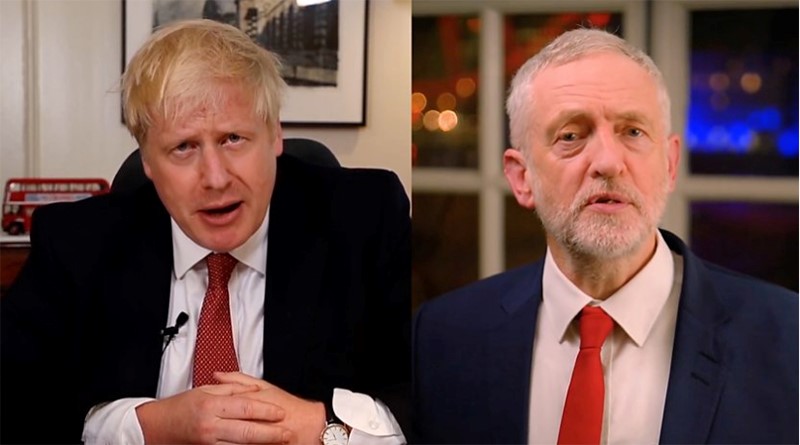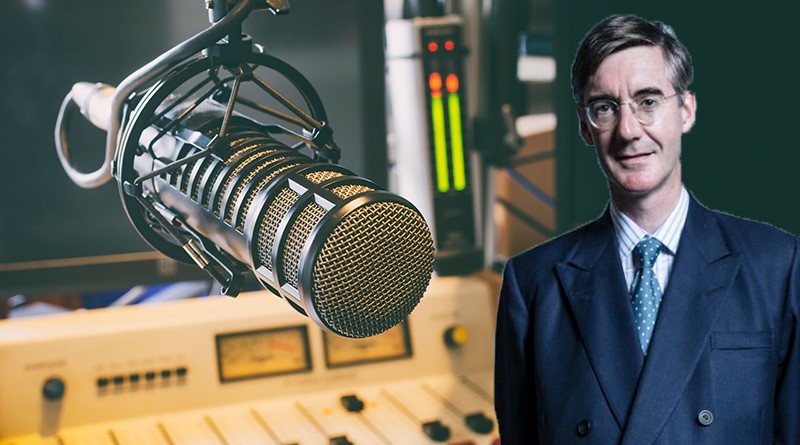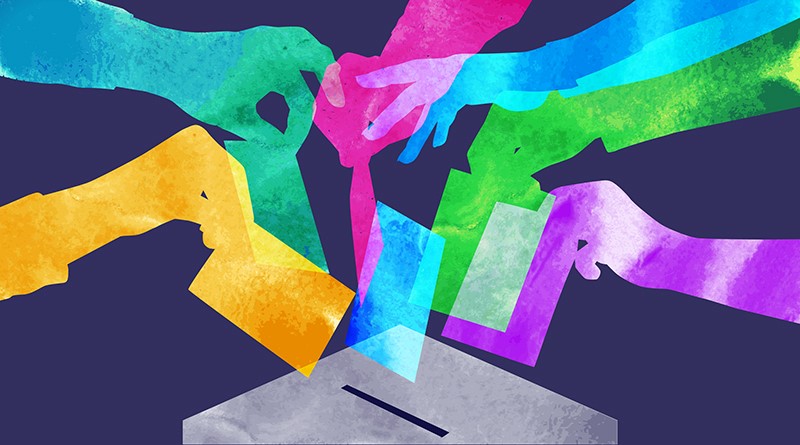Undeniably, the BBC is special. It is a unique, publicly funded broadcaster with a greatly admired history and an international reputation which – deserved or not – means that it has a much scrutinised news output. But, to put it mildly, this has been a controversial General Election campaign thus far for the Corporation.
In some senses, this is to be expected – since its inception in 1926 the Corporation’s relationship with politicians of all affiliations has been characterised by accusations that one side was being more favourably treated than the other. In 1929, as former BBC political editor Nick Robinson writes, Winston Churchill accused it of “debarring public men from access to a public who wish to hear”. Margaret Thatcher, PM for all of the 1980’s, notoriously disliked the BBC on principle, declaring its news coverage, “biased and irresponsible” whilst Tony Blair, in the aftermath of the Iraq war, accused the Corporation of mounting as “serious an attack on my integrity as there could possibly be".
Indeed, it’s been a long held maxim of BBC journalists that if they are being criticised on all sides, then they must be doing something right. As Fran Unsworth, director of news and current affairs, wrote in an impassioned defence of the BBC’s coverage in Wednesday’s Guardian, the Corporation receives roughly equal volumes of audience feedback suggesting they favour opposite sides of the political spectrum.
In the General Election campaign of 2019, though, things have changed considerably in the sense that it is not only the politicians and sections of the press who are complaining of BBC bias. They have been joined by members the public and various Party members who, enabled by the immediacy and availability of social media forums, have not been slow at pointing out incidences of perceived political favouritism.
The first of note occurred on November 11th when BBC Breakfast news showed footage of Boris Johnson laying a wreath at the remembrance service at the Cenotaph. The problem was the footage was from 2016 and not 2019. In the 2016 footage, Johnson was obviously visibly younger and, by many an estimation, far more presentable, well-groomed and capable of laying a wreath than he appeared to be in 2019.
The BBC issued an apology stating that what happened “was a production mistake and we apologise for the error," but this proved to be unacceptable to a great many, who accused the Corporation of deliberately seeking to show the PM in the best possible light. Under the hashtag #wreathgate one commenter wrote:
“I hope #wreathgate is the wake-up call that alerts people to the sheer brutality of the BBC's propaganda function. Hopefully people will now see it for what it is. We're being lied to, people. Every day. And it's us who pay for it.”
There was much more of this with a significant number of people refusing to believe that this was simply a procedural and editing error. It was, for some, proof that the BBC was actively promoting the Premiership of Johnson. Yet, despite the protestations of professionals such as Shelagh Fogarty who pointed out that mistakes can and do happen in a pressurised environment, the criticism continued.
Then there was the Question Time leaders’ debate broadcast on November 22nd. A question from an audience member - “how important is it for someone in your position of power to always tell the truth?”- was met with knowing laughter by the audience before Johnson replied in typically stuttering fashion. However, in an edited version of events on the lunchtime news the following day, the laughter had been wiped.
The BBC again apologised, saying they had:
“Edited out laughter from the audience. Although there was absolutely no intention to mislead, we accept that this was a mistake on our part, as it didn’t reflect the full reaction to Boris Johnson’s answer. We did not alter the soundtrack or image in any way apart from this edit, contrary to some claims on social media.”
Add to these incidents the failure to have Johnson interviewed by Andrew Neil and the apparent shelving of a Panorama special on Universal Credit and we have a number of reasons to ask if there is any truth in the accusation that the BBC is actively pro Tory? There are some prominent and respected voices who are arguing just that. The Guardian’s Labour supporting Owen Jones has written that The Tories have most of the press slavishly on their side and the BBC acting like a government broadcaster. Former Daily Mail journalist Peter Oborne, currently gatekeeper of a website dedicated to cataloguing Johnson’s untruths, is unequivocal. The Corporation has become an ally of the written press, he has written and has: “been behaving in a way that favours the Tories.”
Then there are the academics who carefully monitor the output of the BBC, election time or not. Tom Mills author of The BBC: Myth of a Public Service is more judicious and circumspect. The BBC’s issues are more structural. He has argued that it’s not as if “presenters and reporters take instructions from the government or anyone else” but that it’s journalism has always inclined in favour of the government of the day and that the Corporation has a “particular working culture based around policies, conventions and incentives that influence how the people who work there behave, as well as who is appointed or promoted.”
Justin Schlosberg of the University of London cites the research published by Loughborough University during this election and states that in interviews there is no evidence to suggest the BBC is particularly lenient to one side or the other. In fact they are very careful to ensure a “balanced” platform. The problem is, argues Schlosberg, that broadcasters, and in particular the BBC “have systematically mirrored, and in some aspects intensified skews in the press coverage.”
The afore mentioned Fran Unsworth mounts a refreshing defence of the organisation she works for. The BBC is committed to impartiality she states, and the priority is, as ever, the audience. Critics of its mistakes fail to appreciate the hundreds of hours of programming, the outside broadcasts, the fact checking and the array of different approaches. Answering the accusations of bias she writes of the vast number of journalist at work at one time working on numerous programmes. These are not ideal conditions for concerted conspiracies.
I think it important to highlight the constraints under which the journalists are operating. There has never been an election so intense, so relentlessly scrutinised and within this BBC media workers operate to strict guidelines, codes and a variety of other internal and external factors. Yes, journalists make mistakes, as do we all. But as Unsworth states, information has been routinely weaponised and individual BBC journalists face the most appalling abuse (from all sides of the political debate, it must be said) on a daily basis. Laura Kuenssberg, particularly, is the target for the most vitriolic and often misogynistic abuse.
None of this means, as my colleague Professor Stephen Cushion argues, that the BBC does not have questions to answer about how it interprets impartiality and counters political disinformation. But as his recent research for OFCOM into the Corporation’s news and current affairs output suggests, although the BBC might be criticised, the overall result is a higher standard of journalism in comparison to other providers.
In some senses, this is to be expected – since its inception in 1926 the Corporation’s relationship with politicians of all affiliations has been characterised by accusations that one side was being more favourably treated than the other. In 1929, as former BBC political editor Nick Robinson writes, Winston Churchill accused it of “debarring public men from access to a public who wish to hear”. Margaret Thatcher, PM for all of the 1980’s, notoriously disliked the BBC on principle, declaring its news coverage, “biased and irresponsible” whilst Tony Blair, in the aftermath of the Iraq war, accused the Corporation of mounting as “serious an attack on my integrity as there could possibly be".
Indeed, it’s been a long held maxim of BBC journalists that if they are being criticised on all sides, then they must be doing something right. As Fran Unsworth, director of news and current affairs, wrote in an impassioned defence of the BBC’s coverage in Wednesday’s Guardian, the Corporation receives roughly equal volumes of audience feedback suggesting they favour opposite sides of the political spectrum.
In the General Election campaign of 2019, though, things have changed considerably in the sense that it is not only the politicians and sections of the press who are complaining of BBC bias. They have been joined by members the public and various Party members who, enabled by the immediacy and availability of social media forums, have not been slow at pointing out incidences of perceived political favouritism.
The first of note occurred on November 11th when BBC Breakfast news showed footage of Boris Johnson laying a wreath at the remembrance service at the Cenotaph. The problem was the footage was from 2016 and not 2019. In the 2016 footage, Johnson was obviously visibly younger and, by many an estimation, far more presentable, well-groomed and capable of laying a wreath than he appeared to be in 2019.
The BBC issued an apology stating that what happened “was a production mistake and we apologise for the error," but this proved to be unacceptable to a great many, who accused the Corporation of deliberately seeking to show the PM in the best possible light. Under the hashtag #wreathgate one commenter wrote:
“I hope #wreathgate is the wake-up call that alerts people to the sheer brutality of the BBC's propaganda function. Hopefully people will now see it for what it is. We're being lied to, people. Every day. And it's us who pay for it.”
There was much more of this with a significant number of people refusing to believe that this was simply a procedural and editing error. It was, for some, proof that the BBC was actively promoting the Premiership of Johnson. Yet, despite the protestations of professionals such as Shelagh Fogarty who pointed out that mistakes can and do happen in a pressurised environment, the criticism continued.
Then there was the Question Time leaders’ debate broadcast on November 22nd. A question from an audience member - “how important is it for someone in your position of power to always tell the truth?”- was met with knowing laughter by the audience before Johnson replied in typically stuttering fashion. However, in an edited version of events on the lunchtime news the following day, the laughter had been wiped.
The BBC again apologised, saying they had:
“Edited out laughter from the audience. Although there was absolutely no intention to mislead, we accept that this was a mistake on our part, as it didn’t reflect the full reaction to Boris Johnson’s answer. We did not alter the soundtrack or image in any way apart from this edit, contrary to some claims on social media.”
Add to these incidents the failure to have Johnson interviewed by Andrew Neil and the apparent shelving of a Panorama special on Universal Credit and we have a number of reasons to ask if there is any truth in the accusation that the BBC is actively pro Tory? There are some prominent and respected voices who are arguing just that. The Guardian’s Labour supporting Owen Jones has written that The Tories have most of the press slavishly on their side and the BBC acting like a government broadcaster. Former Daily Mail journalist Peter Oborne, currently gatekeeper of a website dedicated to cataloguing Johnson’s untruths, is unequivocal. The Corporation has become an ally of the written press, he has written and has: “been behaving in a way that favours the Tories.”
Then there are the academics who carefully monitor the output of the BBC, election time or not. Tom Mills author of The BBC: Myth of a Public Service is more judicious and circumspect. The BBC’s issues are more structural. He has argued that it’s not as if “presenters and reporters take instructions from the government or anyone else” but that it’s journalism has always inclined in favour of the government of the day and that the Corporation has a “particular working culture based around policies, conventions and incentives that influence how the people who work there behave, as well as who is appointed or promoted.”
Justin Schlosberg of the University of London cites the research published by Loughborough University during this election and states that in interviews there is no evidence to suggest the BBC is particularly lenient to one side or the other. In fact they are very careful to ensure a “balanced” platform. The problem is, argues Schlosberg, that broadcasters, and in particular the BBC “have systematically mirrored, and in some aspects intensified skews in the press coverage.”
The afore mentioned Fran Unsworth mounts a refreshing defence of the organisation she works for. The BBC is committed to impartiality she states, and the priority is, as ever, the audience. Critics of its mistakes fail to appreciate the hundreds of hours of programming, the outside broadcasts, the fact checking and the array of different approaches. Answering the accusations of bias she writes of the vast number of journalist at work at one time working on numerous programmes. These are not ideal conditions for concerted conspiracies.
I think it important to highlight the constraints under which the journalists are operating. There has never been an election so intense, so relentlessly scrutinised and within this BBC media workers operate to strict guidelines, codes and a variety of other internal and external factors. Yes, journalists make mistakes, as do we all. But as Unsworth states, information has been routinely weaponised and individual BBC journalists face the most appalling abuse (from all sides of the political debate, it must be said) on a daily basis. Laura Kuenssberg, particularly, is the target for the most vitriolic and often misogynistic abuse.
None of this means, as my colleague Professor Stephen Cushion argues, that the BBC does not have questions to answer about how it interprets impartiality and counters political disinformation. But as his recent research for OFCOM into the Corporation’s news and current affairs output suggests, although the BBC might be criticised, the overall result is a higher standard of journalism in comparison to other providers.




 RSS Feed
RSS Feed


